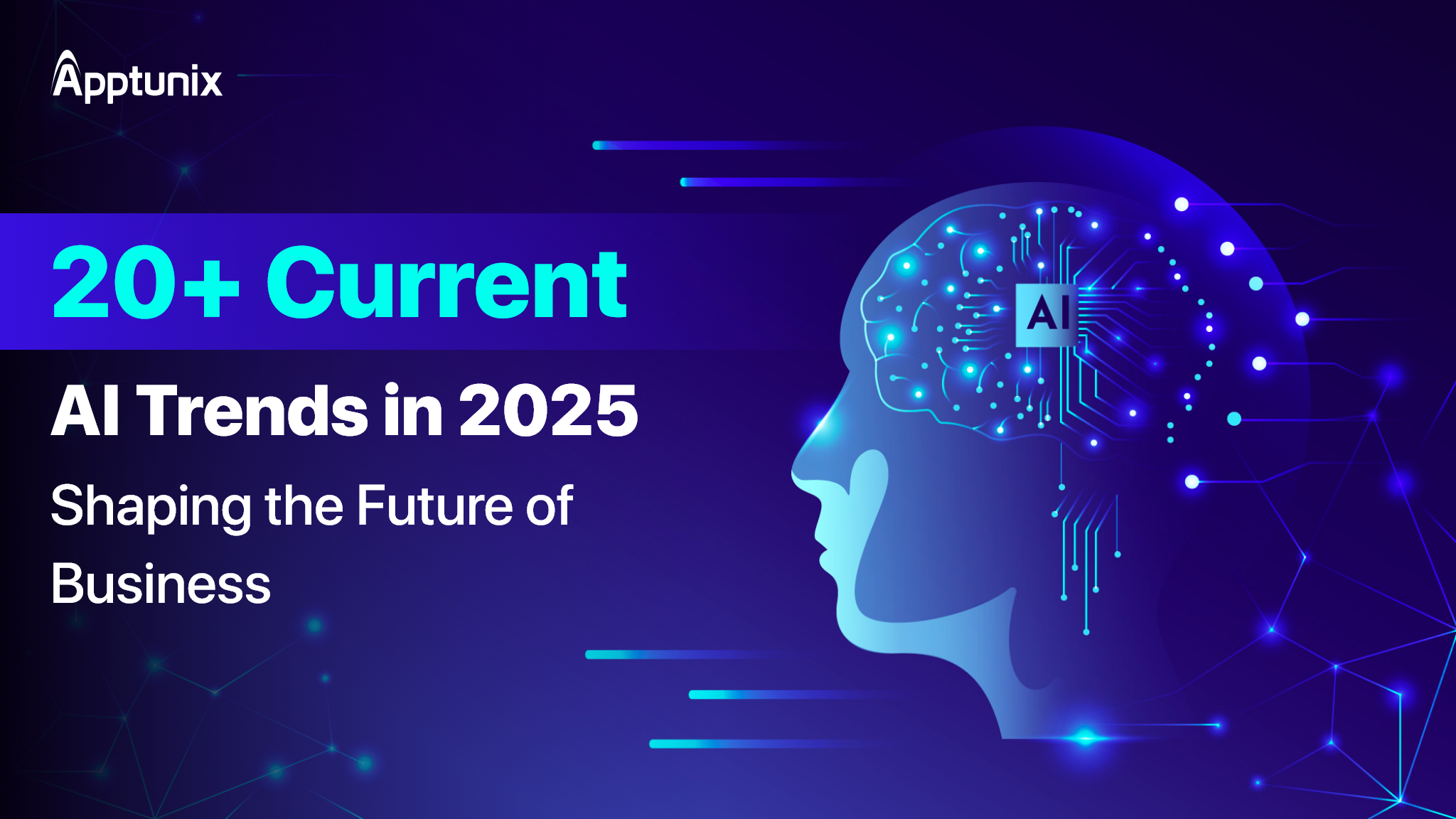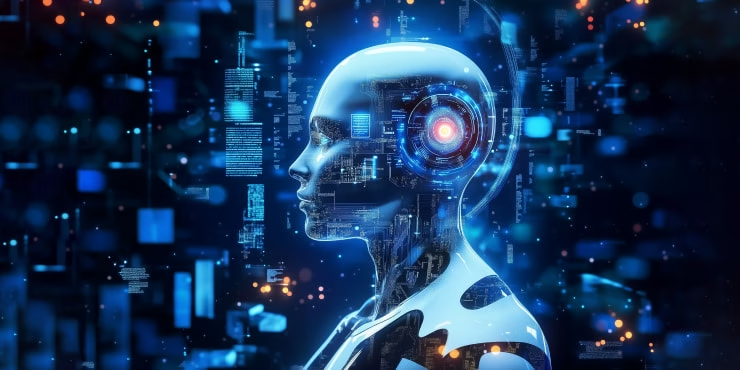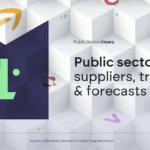The Profound Impact of Artificial Intelligence on Industries by 2025
Estimated reading time: 10 minutes
Key Takeaways
- The impact of artificial intelligence on industries 2025 is poised to be immense, fundamentally reshaping business operations and innovation.
- Key artificial intelligence trends 2025 include Generative AI, Explainable AI (XAI), Hyper-personalization, Edge AI, and advanced Automation.
- Significant AI breakthroughs 2025 are revolutionizing fields like Natural Language Processing (NLP), Computer Vision, Predictive Analytics, and Reinforcement Learning.
- AI in healthcare is transforming diagnostics, drug discovery, personalized treatment, robotic surgery, and administrative efficiency.
- AI in e-commerce is enhancing customer experience through personalized recommendations, optimized pricing, intelligent chatbots, fraud detection, and supply chain management.
- By 2025, AI is expected to shift the job market, eliminating some roles while creating new ones, necessitating workforce adaptation.
- Businesses must strategically adopt AI to remain competitive, innovative, and prepared for an AI-driven future.
Table of contents
- The Profound Impact of Artificial Intelligence on Industries by 2025
- Key Takeaways
- Introduction
- Section 1: The Evolving Landscape of Artificial Intelligence Trends for 2025
- Section 2: Groundbreaking AI Breakthroughs Shaping the Future
- Section 3: AI in Healthcare: Revolutionizing Patient Care and Operations
- Section 4: AI in E-commerce: Enhancing Customer Experience and Business Growth
- Section 5: The Broader Impact of Artificial Intelligence on Industries by 2025
- Conclusion
- FAQ
Introduction
Artificial Intelligence (AI) is no longer a futuristic concept; it is a profound and transformative force that is actively reshaping the global landscape. The impact of artificial intelligence on industries 2025 is set to be immense, fundamentally reshaping how businesses operate and innovate.
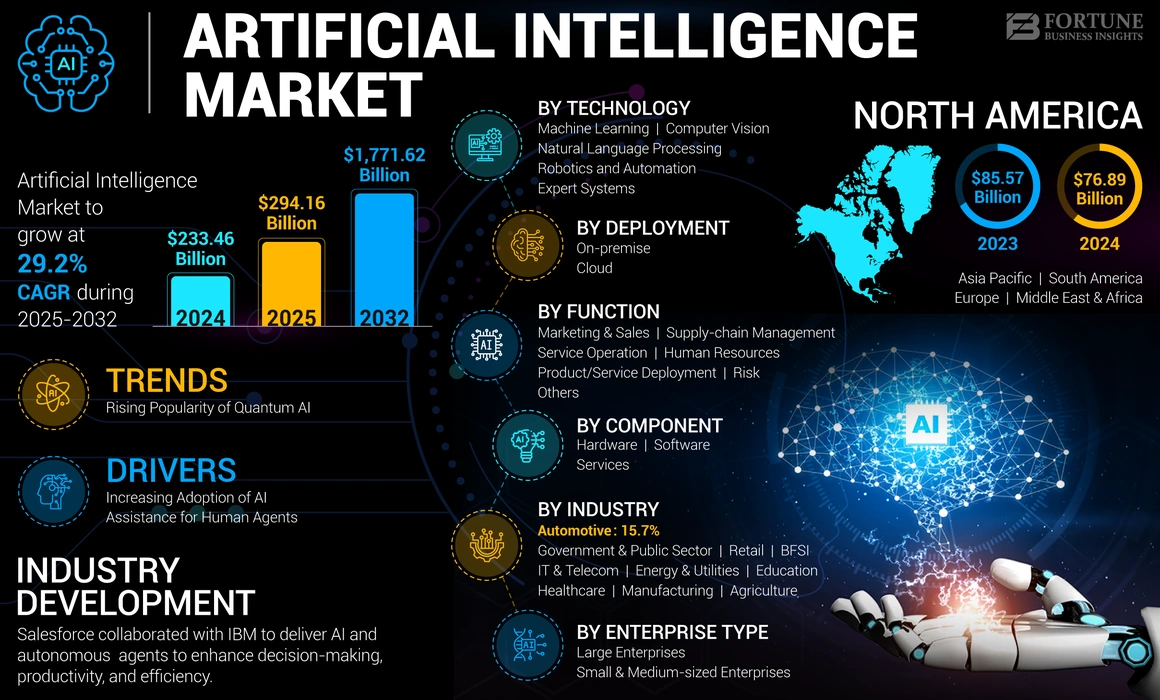
We are witnessing an accelerating pace of AI adoption, with its economic contributions growing year after year. By 2025, its impact on industries is expected to be both profound and far-reaching, with AI adoption rates, economic contributions, and technological advancements accelerating on a global scale.
This blog post will delve into the emerging artificial intelligence trends 2025, highlight significant AI breakthroughs 2025, and provide in-depth analyses of AI’s role in critical sectors like AI in healthcare and AI in e-commerce. Readers will gain a comprehensive understanding of AI’s current and future influence, along with actionable insights into new opportunities, evolving risks, and emerging best practices.
Section 1: The Evolving Landscape of Artificial Intelligence Trends for 2025
The year 2025 promises to be a pivotal moment for artificial intelligence, with several key trends poised to define its trajectory and impact across various industries.
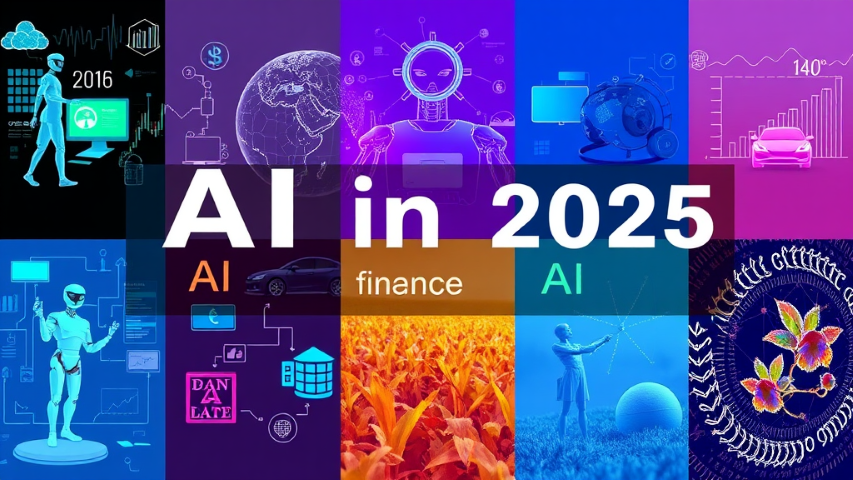
- Generative AI: This is perhaps the most talked-about trend. Generative AI models are already widely adopted and making a significant impact. Already, 65% of organizations regularly use generative AI for productivity, creativity, and personalization—double the adoption rate of the previous year.
- Explainable AI (XAI) and AI Ethics: As AI systems become more sophisticated, there’s an increasing emphasis on transparency, fairness, and responsible development. Driven by regulatory and social concerns, XAI aims to make AI decision-making processes understandable to humans.
- Hyper-personalization: AI enables businesses to move beyond basic personalization. It facilitates highly tailored marketing campaigns, product recommendations, and services by analyzing vast amounts of user data, leading to greater consumer engagement and satisfaction.
- Edge AI: This trend involves processing data directly on devices rather than solely relying on the cloud. Edge AI offers significant benefits in terms of speed, enhanced security, and scalability, making it crucial for real-time applications like autonomous systems and IoT devices.
- Automation: AI continues to automate both routine tasks and more complex workflows. This is evident across various sectors, including manufacturing, transportation, and finance, where AI streamlines operations and boosts efficiency.
The widespread adoption of these trends is undeniable. By 2025, 77% of companies will be using or exploring AI, with adoption rates rapidly rising across all sectors. These trends signify a broad integration of AI into the fabric of business operations and create a competitive imperative for organizations to leverage advanced AI tools to stay ahead.
Section 2: Groundbreaking AI Breakthroughs Shaping the Future
Beyond evolving trends, specific AI breakthroughs are rapidly transforming capabilities and opening up new frontiers of possibility. These advancements are instrumental in driving innovation and boosting productivity.

- Natural Language Processing (NLP): Modern NLP advancements enable AI systems to understand context with unprecedented depth. This revolutionizes communication, provides more nuanced decision support, and dramatically enhances customer service interactions.
- Computer Vision: Enhanced capabilities in image and video analysis are powering critical applications. From autonomous vehicles and advanced healthcare diagnostics to sophisticated industrial automation, computer vision is a cornerstone of AI’s impact.
- Predictive Analytics: Improved predictive algorithms are supporting real-time forecasting and critical decision-making across key industries such as finance, retail, and logistics. These systems can anticipate future trends and outcomes with greater accuracy.
- Reinforcement Learning & Autonomous Systems: AI agents are increasingly learning complex strategies to optimize operations, manage intricate supply chains, and drive the development of truly autonomous mobility solutions.
The economic potential of these breakthroughs is staggering. Generative AI, for instance, is projected to add $15.7 trillion to the global economy by 2030. These advancements are not merely theoretical; they are directly contributing to boosting productivity, enabling the creation of innovative products, and opening up entirely new markets, fundamentally altering the competitive landscape.
Section 3: AI in Healthcare: Revolutionizing Patient Care and Operations
The healthcare industry is experiencing a profound transformation thanks to the integration of AI. These advancements are leading to improved patient outcomes, more efficient operations, and accelerated medical research.

- Diagnostics: Machine learning models are now analyzing medical images with remarkable accuracy, aiding in the early and precise diagnosis of diseases like cancer and retinopathy. This capability significantly improves patient prognoses.
- Drug Discovery: AI is dramatically accelerating the complex process of screening potential drug molecules and predicting their therapeutic efficacy. This not only reduces development timelines but also cuts down on the enormous costs associated with bringing new medications to market.
- Personalized Treatment: AI-powered predictive analytics enable the creation of highly customized treatment plans. These plans are tailored to individual patient data, including genetic profiles, leading to more effective and targeted therapies.
- Robotic Surgery: AI systems are enhancing the precision, safety, and minimally invasive nature of surgical procedures. Robotic-assisted surgeries can lead to faster recovery times and reduced complications.
- Administrative Efficiency: Beyond direct patient care, AI is streamlining critical administrative tasks within healthcare systems. This includes managing vast amounts of patient data, optimizing appointment scheduling, and expediting insurance claims processing.
The market for AI-driven healthcare solutions is rapidly expanding. Valued at $20.65 billion in 2023, it is projected to reach an astounding $187.95 billion by 2030. The current adoption rate is also impressive, with 38% of medical providers incorporating computers into diagnostic decisions, demonstrating rapid adoption. These advancements are collectively leading to better patient outcomes and more efficient healthcare operations worldwide.
Section 4: AI in E-commerce: Enhancing Customer Experience and Business Growth
The e-commerce sector is a prime example of how AI is directly impacting consumer interaction and driving business growth. From personalized shopping to secure transactions, AI is revolutionizing online retail.

- Personalized Product Recommendations: AI algorithms meticulously analyze customer behavior, purchase history, and preferences to deliver highly relevant product suggestions. This not only boosts sales but also fosters stronger customer loyalty by making the shopping experience more engaging.
- Pricing Optimization: AI enables dynamic and competitive pricing strategies. By analyzing market trends, inventory levels, and competitor pricing in real-time, businesses can adjust prices to maximize revenue and remain competitive.
- Customer Service Chatbots: AI-powered chatbots provide instant, 24/7 customer support. They efficiently handle common queries, resolve issues, and guide customers, significantly improving overall customer satisfaction and reducing support costs.
- Fraud Detection: Enhancing security is paramount in e-commerce. AI systems analyze transactions in real-time, identifying and preventing fraudulent activities before they can occur, thus protecting both businesses and consumers.
- Supply Chain Management: AI is optimizing critical aspects of the e-commerce supply chain. This includes improving demand forecasting, inventory management, and logistics, leading to greater operational efficiency and reduced costs.
The adoption of AI in e-commerce is widespread, with over half of retail businesses (56%) using AI to improve operational efficiency and customer experience. These AI applications are directly contributing to a superior online shopping experience and driving significant increases in sales and profitability for businesses.
Section 5: The Broader Impact of Artificial Intelligence on Industries by 2025
The influence of AI extends far beyond specific sectors, creating ripple effects across the entire industrial landscape. Understanding this broader impact is crucial for navigating the future of work and business.

- Workforce Transformation: AI’s impact on employment is dual-natured. Projections suggest that AI will eliminate 85 million jobs but simultaneously create 97 million new roles by 2025. This indicates a significant shift towards higher-value, tech-driven work and necessitates proactive reskilling and upskilling efforts.
- Sector Ripple Effects: Beyond healthcare and e-commerce, nearly every sector is experiencing AI-driven transformations. Manufacturing benefits from predictive maintenance and smart automation; finance leverages AI for risk management and algorithmic trading; transportation is being reshaped by autonomous vehicles and route optimization; and entertainment is seeing AI-powered content creation and personalized recommendations.
- Challenges and Opportunities: The widespread integration of AI is not without its challenges. Concerns around job displacement, data privacy, ethical considerations in AI deployment, and the need for robust regulatory frameworks are ongoing. However, these challenges are met with significant opportunities for unprecedented growth, innovation, and efficiency gains across all industries.
- Economic Impact: AI is predicted to boost productivity and GDP significantly. Projections estimate a 1.5% increase in GDP by 2035 due to AI, with a substantial 40% of current GDP being significantly affected by generative AI. This economic uplift underscores the transformative power of AI.
The overarching impact of artificial intelligence on industries 2025 is characterized by rapid adoption, transformative AI breakthroughs 2025, and deep integration across diverse sectors. As challenges evolve alongside opportunities, businesses must proactively adapt to harness AI’s full potential, ensuring they remain competitive and innovative in an increasingly AI-driven world.

Conclusion
The significant impact of artificial intelligence on industries 2025 is undeniable, marked by rapid adoption, transformative AI breakthroughs 2025, and deep integration across a myriad of sectors. We’ve explored key artificial intelligence trends 2025, such as generative AI and the growing importance of ethical frameworks, which are guiding responsible AI development.

The critical role AI plays in specialized fields like AI in healthcare and AI in e-commerce, alongside its broader influence on the global economy and workforce, highlights its pervasive nature. As challenges continue to evolve alongside opportunities, businesses must proactively adapt to harness AI’s full potential, ensuring they remain competitive and innovative in an increasingly AI-driven world.
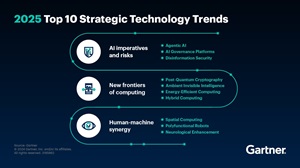
To thrive in this dynamic landscape, businesses must stay informed, embrace strategic AI adoption, and prepare for a future where artificial intelligence is not just a tool, but an integral part of every industry.
FAQ
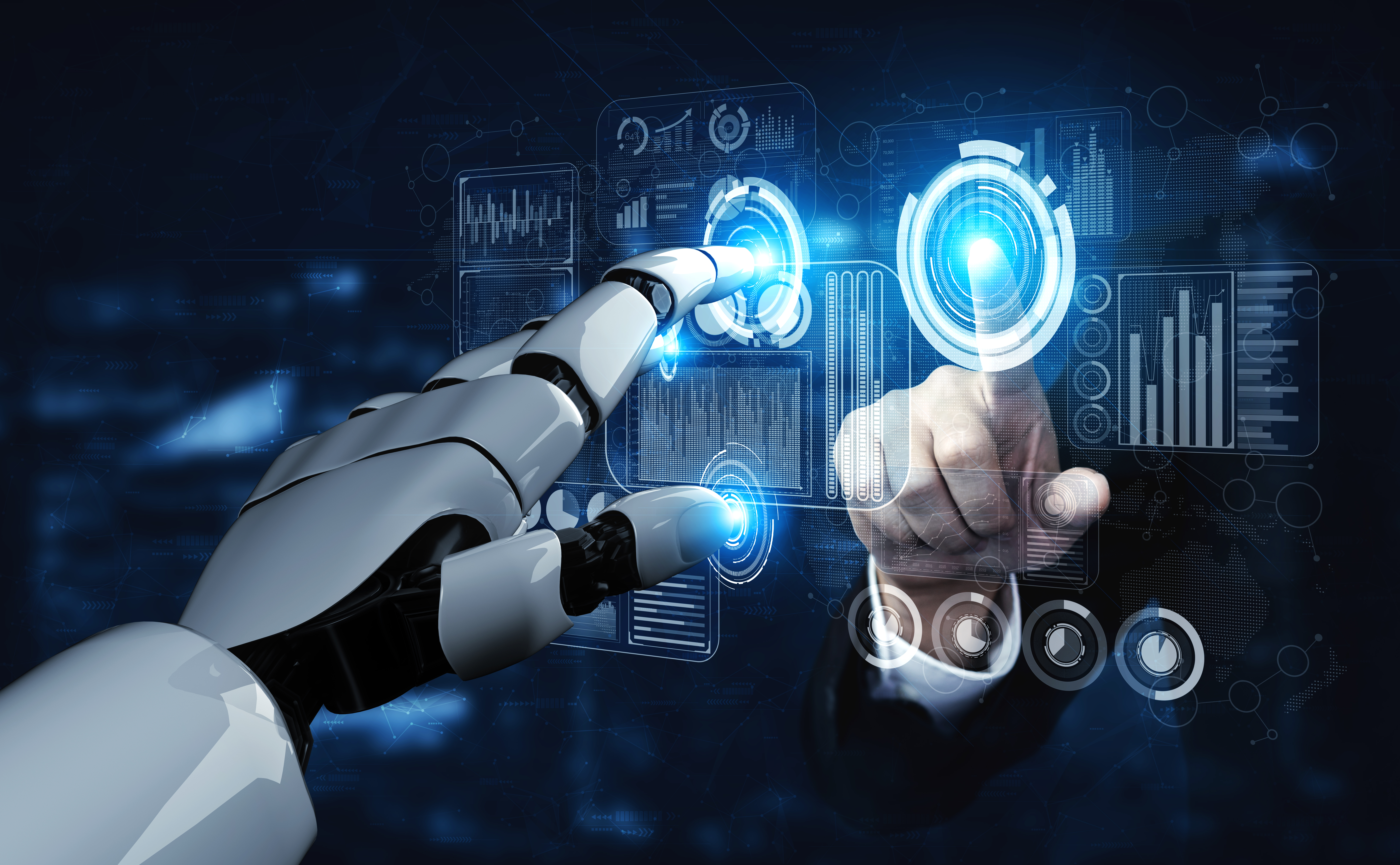
- What are the most impactful AI trends for 2025?
- The most impactful AI trends for 2025 include Generative AI, Explainable AI (XAI) and AI Ethics, Hyper-personalization, Edge AI, and advanced Automation.
- How is AI transforming healthcare?
- AI is transforming healthcare through improved diagnostics, accelerated drug discovery, personalized treatment plans, enhanced robotic surgery, and increased administrative efficiency.
- What is the projected economic impact of AI by 2030?
- Generative AI alone is projected to add $15.7 trillion to the global economy by 2030.
- Will AI create more jobs than it eliminates by 2025?
- Yes, projections suggest that AI will eliminate 85 million jobs but create 97 million new roles by 2025, indicating a net creation of jobs and a shift in the nature of work.
- How is AI impacting the e-commerce industry?
- In e-commerce, AI enhances customer experience through personalized recommendations, optimized pricing, customer service chatbots, fraud detection, and improved supply chain management.
